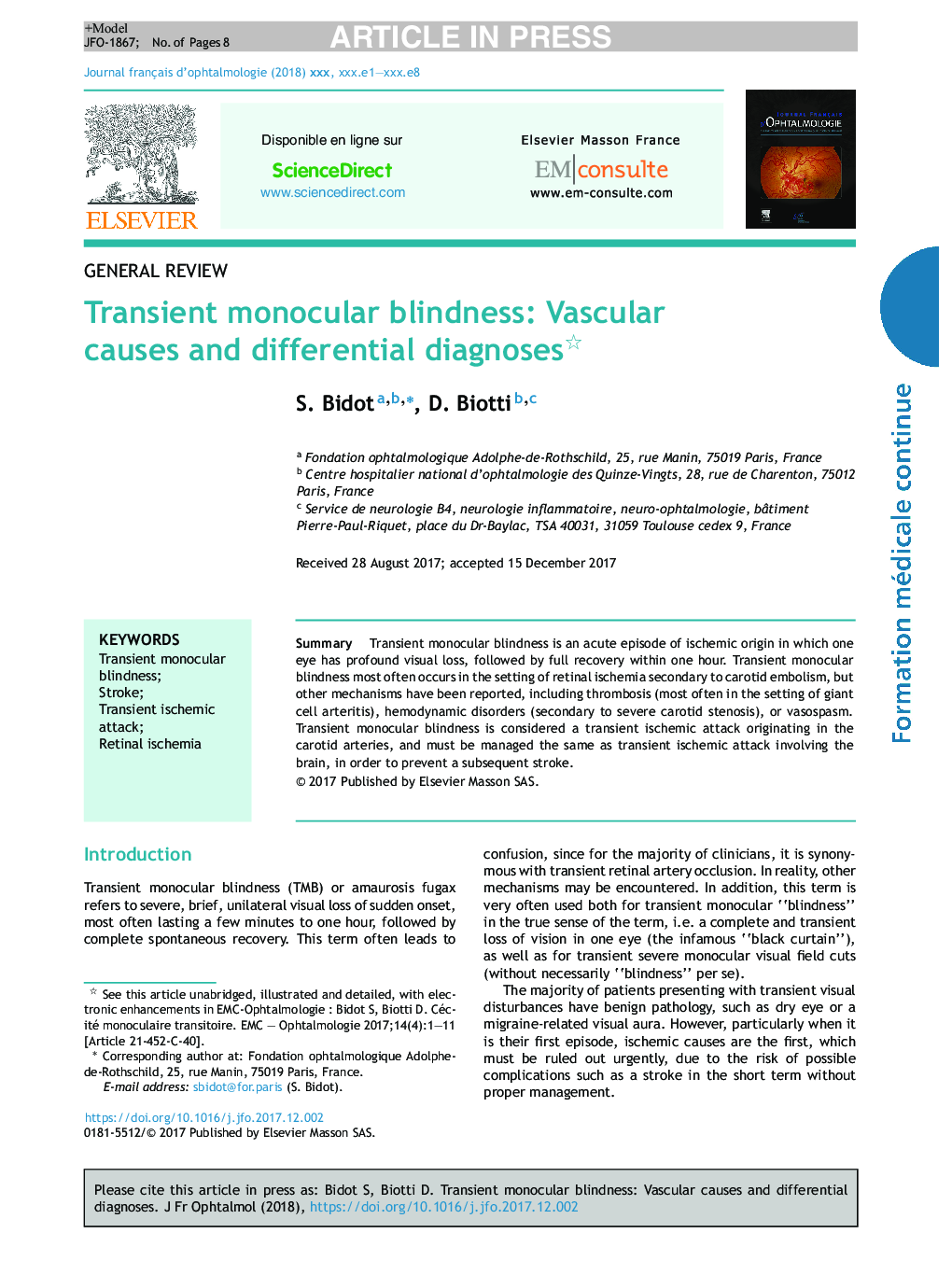| Article ID | Journal | Published Year | Pages | File Type |
|---|---|---|---|---|
| 8793467 | Journal Français d'Ophtalmologie | 2018 | 8 Pages |
Abstract
Transient monocular blindness is an acute episode of ischemic origin in which one eye has profound visual loss, followed by full recovery within one hour. Transient monocular blindness most often occurs in the setting of retinal ischemia secondary to carotid embolism, but other mechanisms have been reported, including thrombosis (most often in the setting of giant cell arteritis), hemodynamic disorders (secondary to severe carotid stenosis), or vasospasm. Transient monocular blindness is considered a transient ischemic attack originating in the carotid arteries, and must be managed the same as transient ischemic attack involving the brain, in order to prevent a subsequent stroke.
Related Topics
Health Sciences
Medicine and Dentistry
Ophthalmology
Authors
S. Bidot, D. Biotti,
